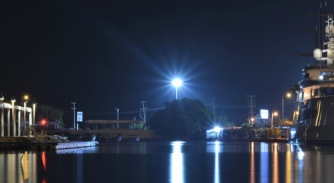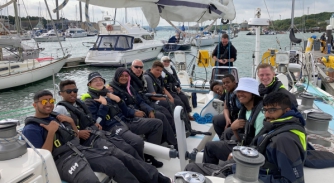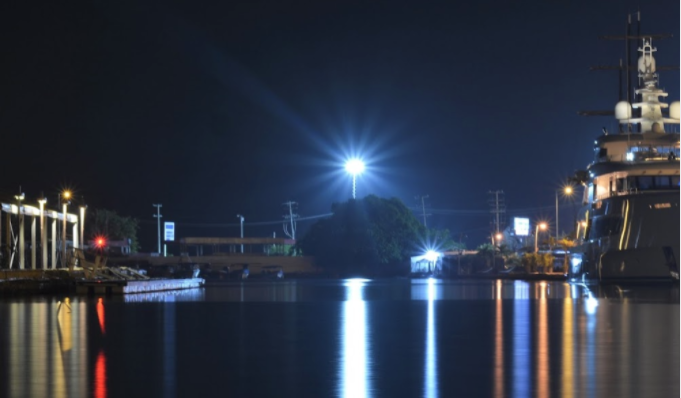2021 mental health report - actionable suggestions
Charles Watkins, Clinical Psychologist at MHSS, and Tim Clarke, director at Quay Crew give clear guidance…
After the sobering findings that came from the crew mental health report, produced by Quay Crew In partnership with Mental Health Support Solutions (MHSS) in 2021, SuperyachtNews follows up with both Tim Clarke, director at Quay Crew and Charles Watkins, Clinical Psychologist at from MHSS. This time we approach the issues raised from a practical and treatment perspective. Raising an issue and recognising a problem still leaves it still a long way from resolution. Both Clarke and Watkins share their reflections on the report and offer some insights into the first steps that yachts can make to address the findings.
A superyacht is a complex integration of personalities, technology and oscillating periods of high stress, long hours and downtime, all of which spread across most of the planet. The STCW course does not cover this in five days, nor does the officer training have a module that addresses the complexities. This system does not have a high tolerance for added stress points like COVID, and the finding of the report shows that there are systemic issues.
There is no magic bullet, but as Watkins begins, there is the hub on which a yacht with good mental health practices turns. “In terms of mental health treatment, the key consideration is; what the culture that you have onboard? This sets the platform for how the crew are going to respond. Is it a frightening culture or does the culture encourage the sharing of issues and challenges?”
“It is vital to have someone contactable who is responsible for resolving crew conflict,” continues Watkins “especially when it comes to difficulties with superiors. There should always be a confidential avenue of communication.”
The culture, as Watkins reinforces, is the root cause and also the most multifaceted issue for a yacht to embrace. “Implementation of systems and appointing personnel that have certain responsibilities who can then deal with these issues is important, otherwise we tend to see them get lost in the day to day operations of a busy yacht. Has it been communicated from the leadership group through the entire crew? Do people know that it's available? I must be a lived experience onboard, not just checking a box.”
“What I mean by lived experiences is; making mental health part of the weekly meetings, having the HOD’s, the master and management start the process and lead the discussion.” Affirms Watkins.
The often-quoted stumbling block is the time pressure that busy yachts are under. The many hats that crew wear and the broad range of responsibilities can lead to important issues being lost in the static. Therefore, the ambulance, in the case of mental health, can be left firmly where we parked it. At the bottom of the cliff. But we can’t hide behind time constraints, as Watkins elaborates: “You can find the time, let’s be honest. There are always ways to streamline the process and do it in a more timely fashion. Of course, many boats are very busy and they're under stress. But it depends on how this is communicated properly and how the culture develops within the sensitivity of being under stress. Is it being it supported or not?”
“There are many more boats that have the capacity to manage these issues in far greater depth than they currently are.” Says Clarke.
Drawing the mental health conversation and treatment into the sphere of the long list of standards that support an efficient yacht is a key step. “In theory, on a well-managed yacht, all aspects of safety and ISM management are recorded and evaluated,” Begins Clarke “I think that if a yacht is managed, mental health should be a part of this whereby the management company could implement easily followable processes and procedures whereby mental health is addressed on a fairly regular basis.” TC
“A really basic example is one where every yacht should have regular crew appraisals, with crew happiness and mental health addressed as part of this appraisal. This should happen at least every six months, ideally once a quarter.”
“This should be more than just a sit-down chat with the captain, especially if the captain is the issue. In the corporate and commercial shipping world, there would be a document that is filled out, covering a variety of things, mainly professionally related, and this could also easily include a section with relevant questions about wellness and mental health” Clarke explains.
“That would be a big step in the right direction. " continues Clarke, "and, of course, reiterating this via this one to ones; the door is always open, there is support here. You can speak to me or you speak directly HOD or the third-party mental health provider.”
The culture onboard and mental health of the crew that operate within it is tied to the ‘fit’ of the crew. A highly reductive word ‘fit’ hides the hard work and practical, rational decisions and systems that can be implemented to ensure the culture onboard works for the owners, crew and management. Therefore, as Clarke reiterates, a lot of this can start with the interview process. “The culture onboard and the relationship with the crew starts from the very first interview. Yachts need a solid recruitment process that is followed consistently. With eight different Heads of Department on large yachts, you will have eight different approaches to interviewing.”
The honesty and transparency that can drive the culture operate both ways, and it’s not just on the crew to ensure that they are the right ‘fit’. “One of the things I'm advising clients at the moment is that there should be an expectations document which all prospective crew get,” Continues Clarke. “And this is what we expect from you in terms of behaviour, and likewise this is what the yacht will offer you. Yachts should have a mission statement, addressing the shared cultural values and desirable behavioural traits you want onboard whilst highlighting this is a genuinely supportive environment.”
“Shaping that culture by doing webinars, doing workshops, communicating it daily, weekly so people find the time to finally change their mind about these issues," Stresses Watkins, "Crew can actually get themselves into a role or a position onboard where they think, OK, this is a safe place for me to share my thoughts, my feelings and my issues. And remember, this is a step by step process. All right. It's not going to be a miracle overnight.”
Once again, the idiosyncrasies of the yachting lived experience can give that impression that we are operating in a vacuum, but mental health recognition and resolution, at a corporate level, is well documented. Therefore, as Clarke sees it, the industry should be learning and adapting from other fields. “Developing an Employer Value Proposition, as with many other fields is a great addition. An EVP helps communicate what is expected and what environment a crew member will be entering. I'll give you a really basic, easy one, which I'd recommend to a lot of yachts, is having a personal trainer or someone with a real interest in fitness onboard that can lead regular morning PT sessions when the schedule allows. This has so many benefits for the crew and indeed the yacht owner.”
“I think we need more leadership training.” Concludes Clarke, “It's something which is vital to touch upon as well, and which underpins a lot of the conversation. There is an idea that when you get to captain level or HOD, for example; this is the point where you've achieved your functional limit. You have made it. Whereas actually, all of us could probably be better leaders within the workplace”
The full survey can be viewed here.
Profile links
NEW: Sign up for SuperyachtNewsweek!
Get the latest weekly news, in-depth reports, intelligence, and strategic insights, delivered directly from The Superyacht Group's editors and market analysts.
Stay at the forefront of the superyacht industry with SuperyachtNewsweek
Click here to become part of The Superyacht Group community, and join us in our mission to make this industry accessible to all, and prosperous for the long-term. We are offering access to the superyacht industry’s most comprehensive and longstanding archive of business-critical information, as well as a comprehensive, real-time superyacht fleet database, for just £10 per month, because we are One Industry with One Mission. Sign up here.
Related news

£1.6 million in unpaid crew wages reclaimed
Nautilus have reclaimed a huge amount of unpaid superyacht crew wages in 2021 and they are expecting more for 2022
Owner

Quay Crew and MHSS publish stark crew mental health report
SuperyachtNews speaks exclusively with Charles Watkins, Clinical Psychologist at MHSS, and Tim Clarke, director at Quay Crew
Crew

Mentoring the next generation
Yachting’s first industry-wide mentoring programme, LEGASEA Mentorship will be launched in December
Crew

UKSA aims to enroll 500 disadvantaged youths
UKSA and Edmiston will aim to give those less fortunate an opportunity to forge a career in the superyacht industry
Crew

“Crew have to care about the boat, we have to care about them”
Porto Mirabello completes the next stage of its development with the opening of its captains and crew lounge
Crew
Related news
£1.6 million in unpaid crew wages reclaimed
4 years ago
Mentoring the next generation
4 years ago
UKSA aims to enroll 500 disadvantaged youths
4 years ago
NEW: Sign up for
SuperyachtNewsweek!
Get the latest weekly news, in-depth reports, intelligence, and strategic insights, delivered directly from The Superyacht Group's editors and market analysts.
Stay at the forefront of the superyacht industry with SuperyachtNewsweek




